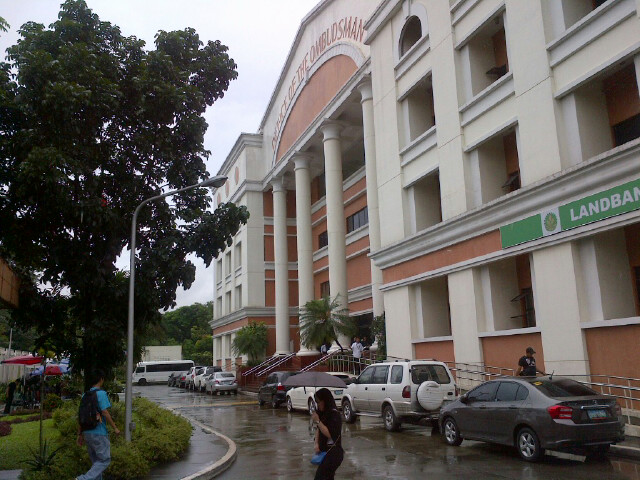DBP execs face charges over P717-M losses
It was literally some dirty wash.
Employees of the Development Bank of the Philippines (DBP) on Friday filed a graft complaint in the Office of the Ombudsman against 14 senior executives of the state-owned bank for allegedly shortchanging the government in the “wash sale” of P14.3-billion worth of treasury notes last year.
In a joint complaint-affidavit, representatives of the DBP Employees Union (DBPEU) and the Association of the DBP Career Officials (Adco) said the government incurred P717 million in actual losses from 28 allegedly illegal transactions entered into by the bank officials from January to March 2014.
“The DBP suffered huge losses from those transactions. This money belongs to the people. That was our money,” DBPEU president Rudelito Tirado Jr. told reporters following the filing of the complaint.
Besides engaging in the illicit practice, Tirado said the DBP hired and assigned personnel who were not licensed to engage in trading activities as required by the Securities and Exchange Commission (SEC).
Article continues after this advertisementPeople made money
Article continues after this advertisement“We are asking the Ombudsman to look deeper into this because no one will believe that nobody benefited from the money which was lost in the transactions,” said Adco president Francis Romulo Badilla Jr.
He said there was “reason to believe” that some unscrupulous DBP officials “earned something” from the anomalous sale of the government securities which, he suspects, could also be happening in other state-owned financial institutions.
According to Badilla, the DBP could have turned over to the government more than P5 billion in earnings this year had it not been for the losses it suffered from the wash sales.
Wash sale
A “wash” transaction occurs when an investor or a group of colluding investors sells security (stock, bonds, options) at a loss and repurchases it again at a bargain, for the purpose of claiming a capital loss and tax deduction later or of creating the impression of active trading.
It is prohibited because the activity has the effect of manipulating market dynamics like the prices and volume of traded securities despite there being no true changes in their ownership. The activity is also detrimental to unsuspecting investors who may rely on the prices established by these illegal trades to price their own transactions.
Named respondents were DBP board chair Jose Nuñez Jr., DBP president Gil Buenaventura and board directors Jose Luis Vera, Cecilio Lorenzo, Alberto Aldaba Lim, Lydia Echauz, Reynaldo Geronimo, Vaughn Montes and Daniel Laogan.
Also included in the complaint were DBP executive vice president Fe Susan Prado, senior vice presidents Fritzie Tangkia-Fabricante and Mariquita Agena, and senior associate vice presidents Rustum Corpuz and Francis de los Reyes.
The bank executives were accused of violating the Anti-Graft and Corrupt Practices Act, the Securities Regulation Code, the Revised Penal Code and Republic Act No. 101491, or the government-owned or -controlled Corporations Governance Act of 2011, the Administrative Code and the regulations of the Bangko Sentral ng Pilipinas.
COA report
The complaint was spurred by a Commission on Audit (COA) report that questioned the suspicious transactions, to which management has replied that the trades were done “in good faith.”
The bank employees said in their complaint that the COA resident auditor had sent an audit observation to Buenaventura on Jan. 9 citing the “highly questionable sale” of P14.3 billion worth of government securities belonging to the bank.
Quoting the COA report, the complainants said the securities, in the form of long-term treasury notes, were sold to only one “counterparty,” the First Metro Investment Corp. (FMIC), a subsidiary and investment arm of the Metrobank group.
It said the securities “were sold at various dates at a loss” to FMIC and were bought back by the DBP “on the same day at the same price and booked under ‘hold to maturity’ account when these were sold at a loss.”
